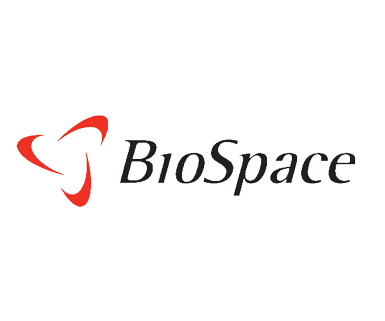Humira Biosimilars and Others Face Uncertain Future Under IRA
By Ana Mulero
July 19, 2023
The recent flood of Humira biosimilars to enter the market highlights the uncertainty that surrounds generic competition for biologics following the introduction of the Inflation Reduction Act.
On July 1 and 3, seven biosimilars entered the U.S. market to challenge Humira, joining Amgen’s Amjevita (adalimumab–atto), which hit the market in January. This flood of generic competition adds insult to injury to AbbVie’s blockbuster arthritis drug, which was penalized under the Inflation Reduction Act (IRA) for its price hike, affecting price and hence competition.
L.E.K. Consulting Managing Director Alex Guth told BioSpace that the competition from biosimilars “has a substantial negative impact on net pricing potential for existing biologics, including Humira.” Penalties and price negotiations imposed by the IRA burden biologics even further, he added.
The legislation was signed into law in August 2022, and the Centers for Medicare and Medicaid Services (CMS) has already penalized 70 drugs and biologics so far. In June, the federal government flagged 43 drugs, including Humira, whose prices have risen faster than the rate of inflation and are thus required to pay a penalty in the form of a rebate to Medicare under the Medicare Prescription Drug Inflation Rebate Program portion of the IRA.
The rebate will be the difference between what the price increase would have been if the manufacturer had stuck with the inflation rate for its increase andthe actual increase of the drug or biologic. For Humira, that amounts to a reduction of 19.72% from what its prices would have otherwise been.
The Biden administration said it intends to invoice these manufacturers by the fall of 2025. Meanwhile, beginning in April, the 20% coinsurance that consumers are charged began to be calculated based on a price increase commensurate with the inflation rate. Until September 30, 2023, Medicare patients may see coinsurance amounts for these drugs reduced by $1 to $449 versus what they would have received before the IRA.
The price penalty combined with the entry of biosimilars adds pressure to price competition.
Humira biosimilar developers have adopted different pricing strategies. Amgen and Biocon Biologics have said they would sell their products at two prices, with the first at a small discount relative to Humira’s new adjusted price of about $7,299 for two subcutaneous kits, or about $84,000 for a year’s supply and the second at an even steeper discount. Biocon said its second price would be 85% lower than Humira’s—about $12,500 each year.
Humira is likely a cautionary tale, experts say. CMS will issue a new list of drugs and biologics that will be subject to rebates based on the rate of inflation on a quarterly basis, and which ones are subjected to rebates could change each quarter as the rate of inflation changes. This volatility is expected to perpetuate uncertainty in the biosimilars market.
In addition, the drug price negotiation portion of the IRA further complicates the issue without a clear answer as to whether the legislation will encourage or discourage the development of biosimilar drugs.
The first Humira biosimilar to enter the market was Amgen’s Amjevita (adalimumab–atto) in January. Earlier this month, seven more joined the competition: Fresenius Kabi’s Idacio (adalimumab–aacf), Biocon Biologics Ltd’s Hulio (adalimumab–fkjp), Boehringer Ingelheim’s Cyltezo (adalimumab–adbm), Organon & Co. and Samsung Bioepis Co., Ltd.’s’ Hadlima (adalimumab–bwwd), Sandoz’s Hyrimoz (adalimumab–adaz), Celltrion USA’s Yuflyma (adalimumab–aaty) and Coherus BioSciences, Inc.’s Yusimry (adalimumab–aqvh).
The only Humira biosimilar that has received interchangeability designation, which allows pharmacists to substitute a biosimilar at the point of dispensing without prior authorization from the prescriber, Cyltezo.
How Will Price Negotiation Affect Biosimilars?
The industry trade lobbying group Pharmaceutical Research and Manufacturers of America (PhRMA) issued a report in June that examines these issues. PhRMA, along with Merck, BMS and others, has sued the U.S. government, challenging the constitutionality of the IRA’s drug price negotiation program.
“Under the IRA, biosimilar manufacturers are not able to predict, with any accuracy, which biologics will be subject to price setting, creating significant uncertainty regarding whether there will be an opportunity to recoup the investments required to develop a biosimilar competitor,” according to PhRMA’s report.
Guth said that this component of the IRA could have positive implications for biologics developers. That’s because biologics, which will be subject to price negotiation after 13 years of market exclusivity, are excluded from pricing negotiation if they already face biosimilar competition or will in the next two years.
This “may create an environment in which originators are more amenable to biosimilar entry than previously because it provides some level of protection from near–term negotiation,” Guth said. But, the IRA can also disincentivize biosimilar development, he added—if negotiation brings down pricing prior to biosimilar entry. This would limit the potential incentive to develop biosimilars, Guth said.
Margery Fischbein, managing director of healthcare at Cassel Salpeter & Co., agreed that this could happen. “An unintended consequence of the IRA is that generic and biosimilar manufacturers may be disincentivized to enter the market given their pricing advantages relative to Medicare negotiated brand name drugs may no longer be attractive,” Fischbein told BioSpace.
Guth said what the industry should be watching is the specific products CMS will identify for negotiation and the beginning of the price negotiation meetings between CMS and the manufacturers of those products. CMS will announce the first ten drugs selected for negotiation under Medicare Part B by September 1.
“The uncertainty for biosimilars generated by the IRA—both in terms of rebates and price negotiation—has not been fully anticipated by the lawmakers,” Guth said.
Ana Mulero is a freelance writer based in Puerto Rico. She can be reached at anacmulero@outlook.com and @anitamulero on Twitter.
Click here to read the PDF.
Click here to read the full article.




